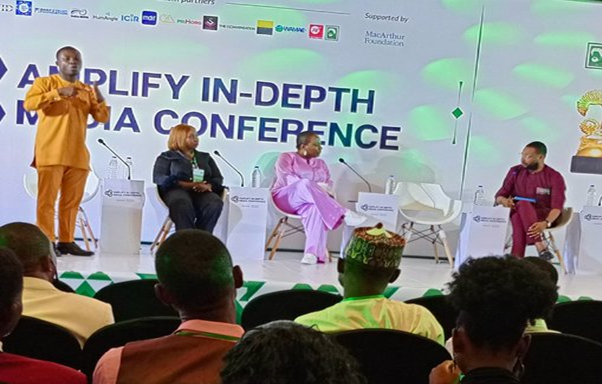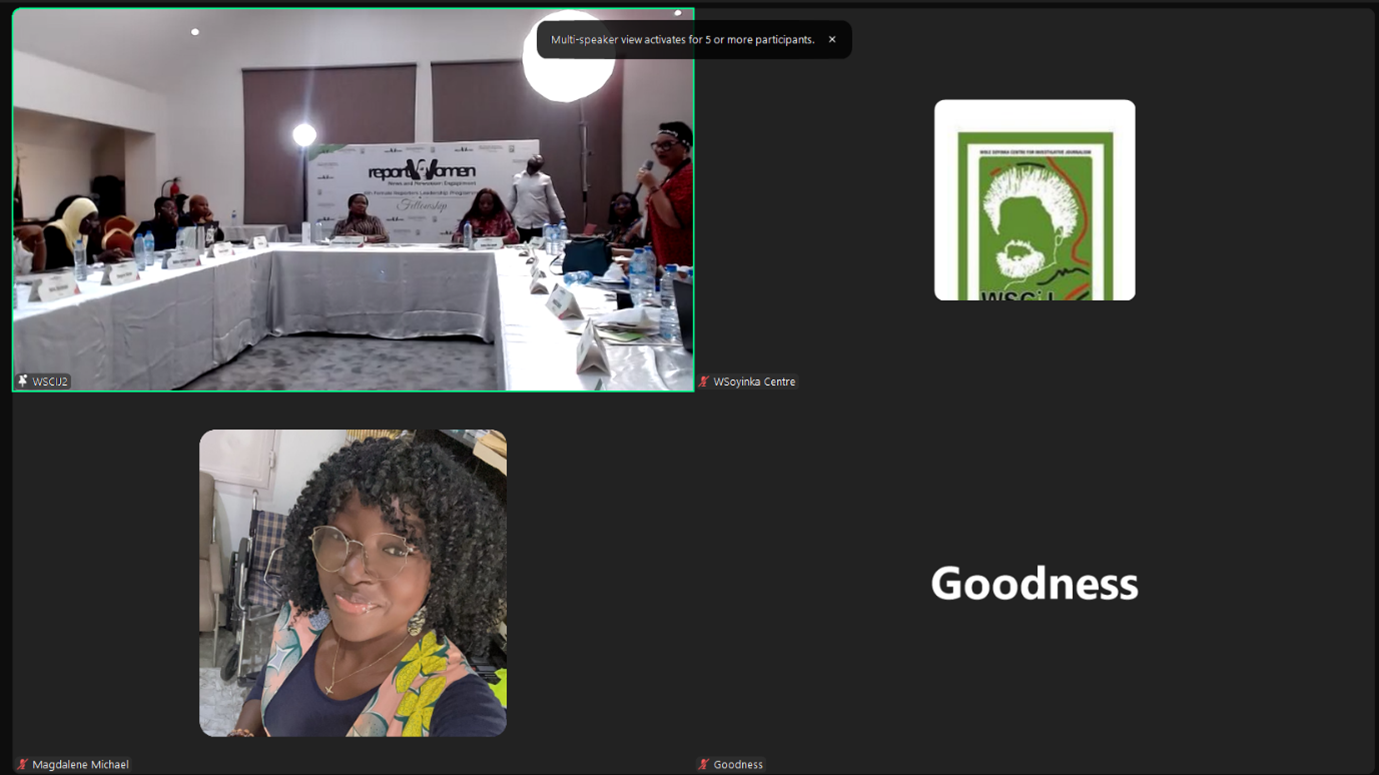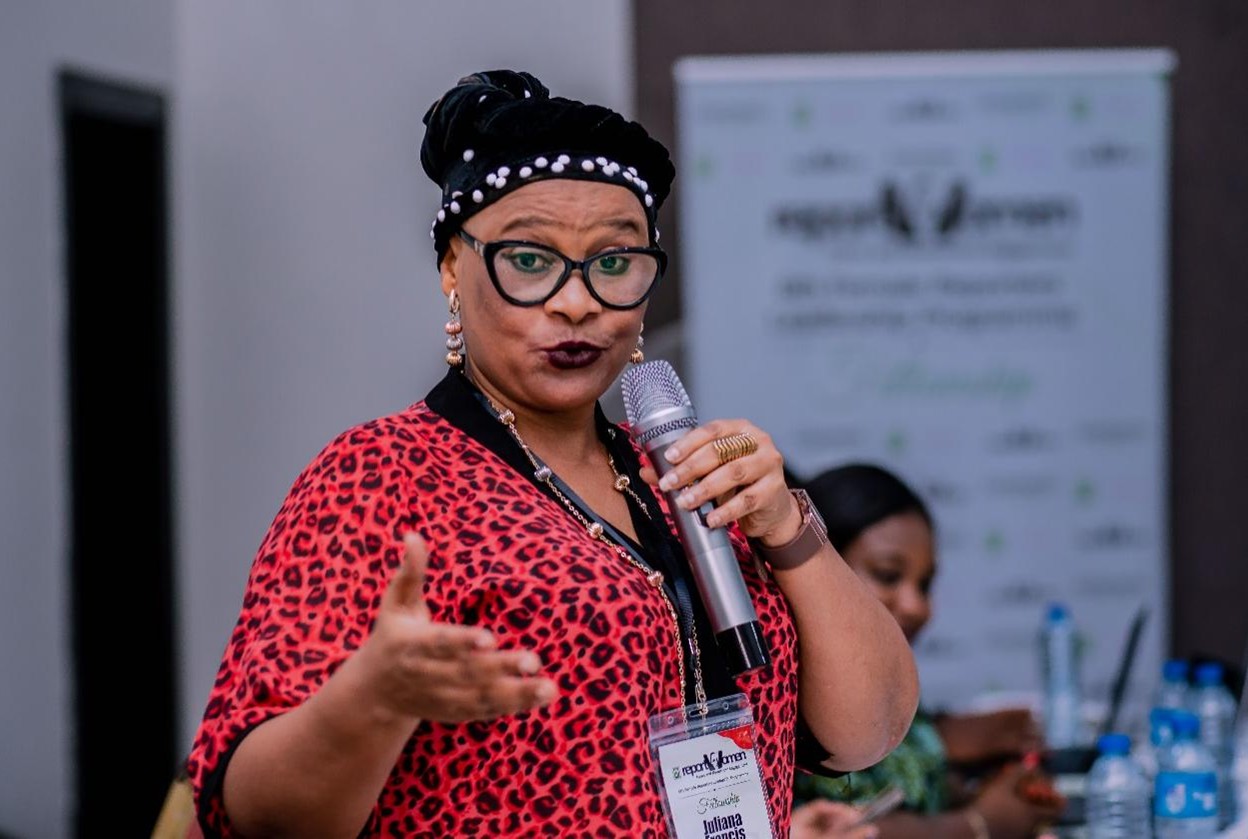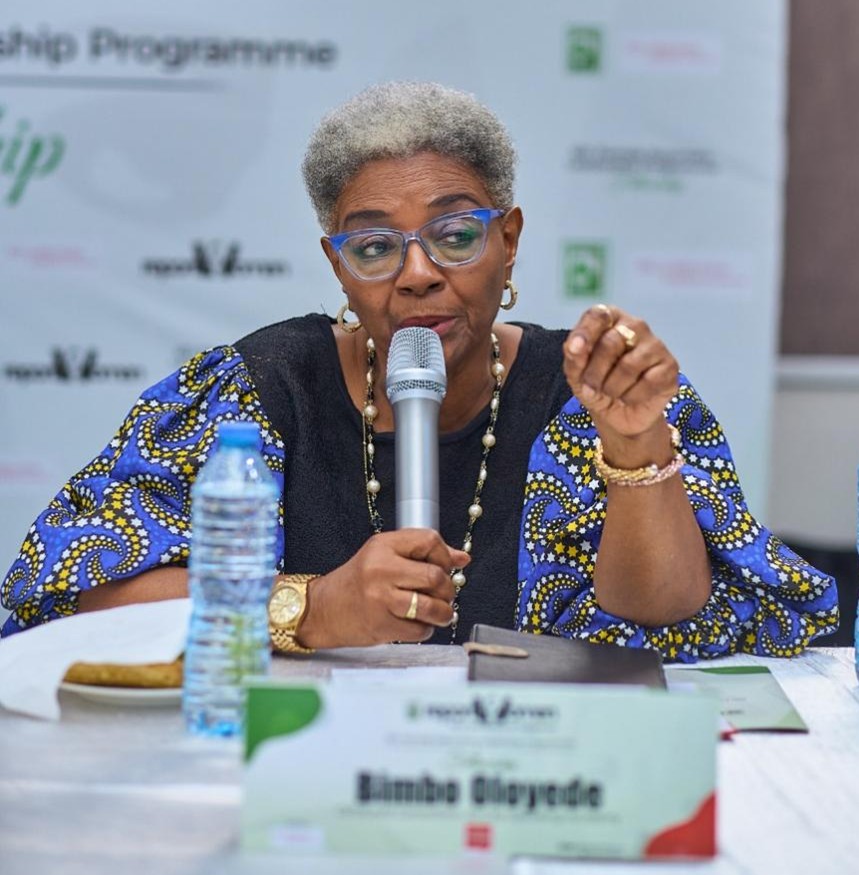At day two of the 2023 Amplify In-depth Media Conference, experts have highlighted the need for innovative journalism while speaking during a panel session on ‘Innovate Tools and Strategies for Independent Journalism in the Digital Age’.
The panel, which was moderated by Nkem Agunwa, Program Manager, WITNESS, spoke extensively about the Artificial Intelligence tools and innovative formats that journalists must adopt.
Nkem noted that the inherent bias of AI does not make it less useful for journalism. She said: “AI is inherently biased. It is important to know that there are vulnerabilities with these tools. For instance, there is no proper representation of Africans with tools like ChatGPT. It just behoves us to be transparent with our methodology”.
On how newsrooms can leverage technology, Kolapo Olapoju, Editor at The Cable said: “The attention span of our target who are mostly young people is getting shorter by the day. We try to meet people halfway. We use motion graphics, and even do our reports in audio format. If they don’t want to read, at least they can listen.”
Responding to concerns about the negative impact of AI, Kolapo said: “AI can never replace us as humans. It merely shortens the time that we use to put our work together.”
Joshua Olufemi, founder at Dataphyte also said: “People and policies are the problem not technology”, further noting the urgent need for journalists to be a part of creating technology driven tools.
“Journalism will come late to everything and we end up being consumers of things we should be part of producing and this reluctance to use AI concerns me because Dataphyte is developing an AI tool for journalists that will help journalists easily work with data.
“We have always been late to the party as journalists, so it is important that we engage now with innovative tools. For every newsroom, I always encourage experimentation. Another important thing is engagement and we need to always explore different formats to engage our audience. We also need to discuss our security and ethical considerations for these tools that we are using but journalists should not shy away from experimenting with new technology.”
Earlier, Titlope Fadare, Assistant Podcast Producer at SciDev.Net said: “We can no longer stick with old models when there are new tools that can help make your work easier. Even when you are using AI, you cannot leave it to do the work for you. AI is supposed to help and guide you; it is still your duty to fact-check information generated by the tools you have used.”
Titilope also spoke about the importance of mobile journalism, describing it as a tool to debunk rumours, misinformation, and fake news. She said: “There are opportunities that will jump at you and situations that will meet you unprepared, but you have to learn to turn it into an opportunity and acquire the skills you need. I stumbled into mobile journalism and started out with using my mobile phone to give my audience sounds, music, visuals and all the elements needed to make a story more immersive.
“Once you are able to show people things, they are more engaged than when they read. When people hear about mobile journalism, what comes to mind is that they are bloggers but that is not true. It simply means you are able to use your phone to generate news in any format for your audience.
“Mobile journalism has come as a tool to debunk rumours, misinformation and fake news. The thing is the media space is now changing. We learn from the old, but we also have to diversify how we reach our audience because they are evolving.”
Meanwhile, the panellists also touched on how newsrooms can engage with data to improve the quality of reporting. Olapoju noted that, “Data does not pander to biases, it is based on facts. A well-presented data will give the public a proper perspective and insight into what is happening.”
He further urged students and practising journalists to take advantage of training opportunities to learn the skills they need to be Data journalists while Olufemi said it was important to have a focus when working with data.
“When working with data, you need to have research questions or things you want to validate before you start analysis. If not, you are going to be driving around aimlessly. However, presentation of the data depends on the audience,” he said.
Princess Abumere, Executive Producer, TRT World urged newsrooms interested in experimenting with digital tools and social platforms to learn more about how they work. She said “As journalists, we need to pay attention to what is happening in the world of Digital Media, Social Media and Technology. Reach out to people from TikTok, Facebook and Chat GPT. Invite them to your newsrooms so they can show you how these tools work.”








